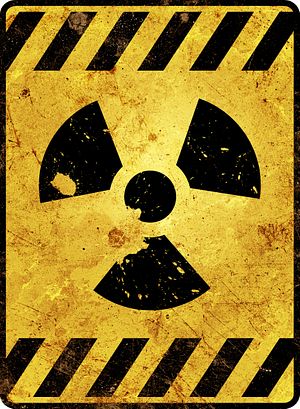According to the Japan Times, both Japanese and U.S. government sources have confirmed that the Obama administration wants Japan to return over 300 kg of plutonium that was given to Japan “for research purposes” during the Cold War. It’s estimated that the plutonium could be used to make between 40 and 50 nuclear weapons. The plutonium is currently kept at the Japan Atomic Energy Agency’s fast critical assembly.
Japan’s government initially was reluctant to return the plutonium, saying it was needed for research on fast reactors. Now, however, sources say Tokyo has agreed to the request. The U.S. and Japan are expected to reveal a formal deal at next month’s nuclear security summit in the Netherlands.
However, the question of Japan’s plutonium is deeper than arguments over the fate of those 330 kilograms. In addition to the plutonium provided by the U.S. decades ago, Japan also has about 44 tons of lower-quality plutonium, stored both in Japan and abroad. The excess reserves are due to Japan’s policy of reprocessing spent nuclear fuel. Rather than storing spent fuel, Japan reprocesses it to separate out plutonium for re-use. Japan is the only non-nuclear weapon state to do so.
Currently, even though Japan has shut down its nuclear reactors (and is not using plutonium), there are plans to open a new reprocessing plant at Rokkasho. According to a report by the International Panel of Fissile Materials, this new plant would separate out about 8 tons of plutonium each year—enough “to make one thousand Nagasaki-type bombs.”
No one is quite sure what Japan will do with all that plutonium. After the 2011 disaster at the Fukushima nuclear power plant, Japan’s nuclear reactors remain idle. Plutonium that would have been used for power generation thus sits unused, and the reprocessing plan would only add to the stockpile. The excess amounts of plutonium are causing regional worries over Japan’s motives, as well as global concerns over the security of these nuclear fuel reserves.
A symposium (co-sponsored by The Asahi Shimbun Co. and Princeton University) held in early January in Tokyo underlined regional concerns about Japan’s plutonium. Steve Fetter, formerly the White House’s assistant director on the Office of Science and Technology Policy, argued that Japan should not continue to accumulate plutonium without clear plans to use it for power generation. He pointed out that the growing stockpile of plutonium suggests to other countries that Japan is effectively developing “a type of nuclear deterrent” without actually taking the step of building a bomb. Japan’s actions could also encourage other countries in the region, including South Korea, to push back against the international pressure that killed their own nuclear fuel reprocessing programs.
At the same symposium, former Japanese foreign minister Yoriko Kawaguchi said that Japan would never take the step of developing nuclear weapons. “Going nuclear would mean withdrawing from the NPT [Non-Proliferation Treaty] and facing international sanctions like North Korea and Iran,” she said, adding that Japanese people would never support such a move.
China isn’t convinced, unsurprisingly, as trust between Beijing and Tokyo is hitting rock bottom of late. In Monday’s press conference, Foreign Ministry spokesperson Hua Chunying noted that “China has grave concerns over Japan’s possession of weapons-grade nuclear materials.” Hua urged Japan to return the high-quality plutonium to the U.S. and to reassure the global community regarding its remaining reserves.
Chinese state media took up the issue as well, with a commentary in Xinhua Tuesday arguing that Tokyo “owes” the world an explanation for its stockpile of plutonium. The article opened by saying, “If a country claims that it sticks by the three non-nuclear principles but at same time hoards far more nuclear materials than it needs, including a massive amount of weapon-grade plutonium, the world has good reason to ask why.” The author also cited unnamed Japanese experts as saying that Japan could develop nuclear bombs within a year, given the presence of weapons-grade nuclear materials.
There is clear concern in China that Japan’s plutonium reserves could eventually wind up being used to develop nuclear weapons. There’s historical precedent for this—India became a nuclear-armed state after using reprocessing to gain nuclear materials. For China, Japan’s plutonium stockpile is one more piece of evidence that Shinzo Abe is seeking return to Japan’s militaristic glory days.
This accumulation of plutonium also threatens global non-proliferation efforts, and thus runs directly counter to U.S. President Barack Obama’s emphasis on nuclear security. “We simply can’t go on accumulating huge amounts of the very material, like separated plutonium, that we’re trying to keep away from terrorists,” he said in a 2012 speech at Hankuk University in Seoul. The White House has apparently been quietly pressuring Japan to drop the reprocessing plan, and to begin simply storing spent nuclear fuel rather than separating out plutonium.
There are complicated domestic reasons for Japan to continue with the opening of the Rokkasho reprocessing plant, including vested interest groups that insist on the economic benefits of continuing with construction. But Tokyo should not overlook the regional and global concern caused by opening a new reprocessing plant when Japan has no concrete plan for using or disposing of its current plutonium stockpiles.

































